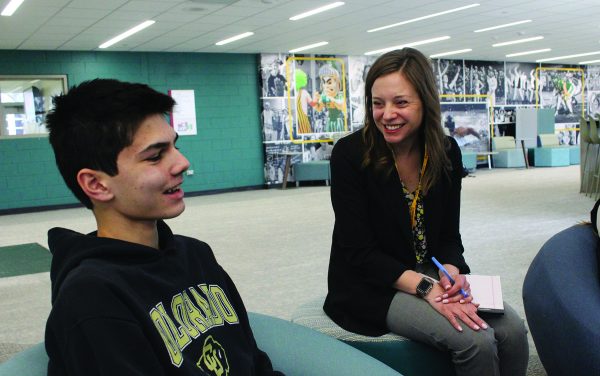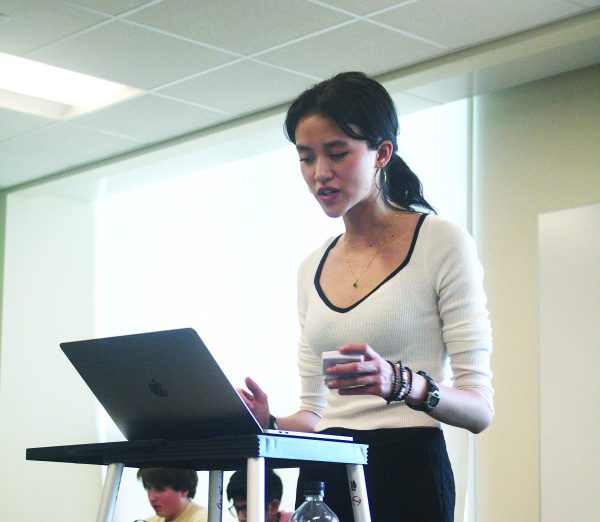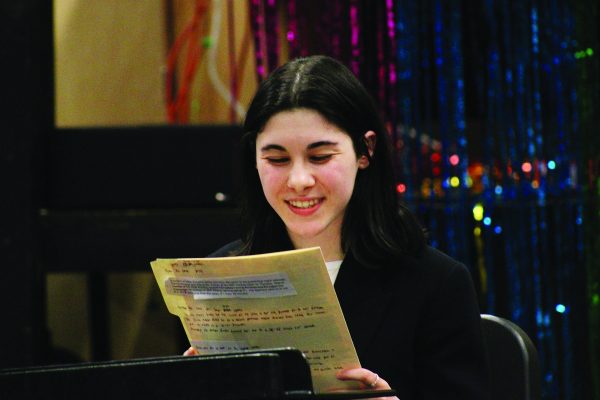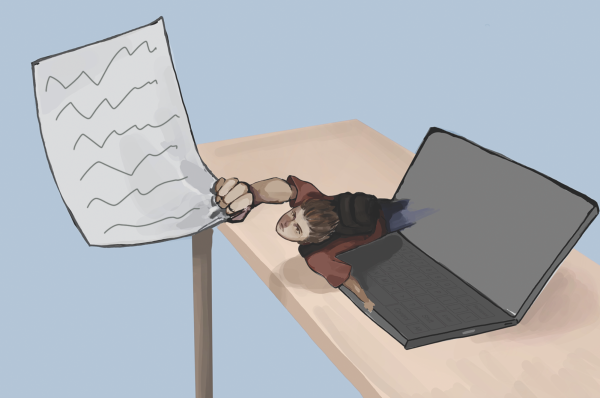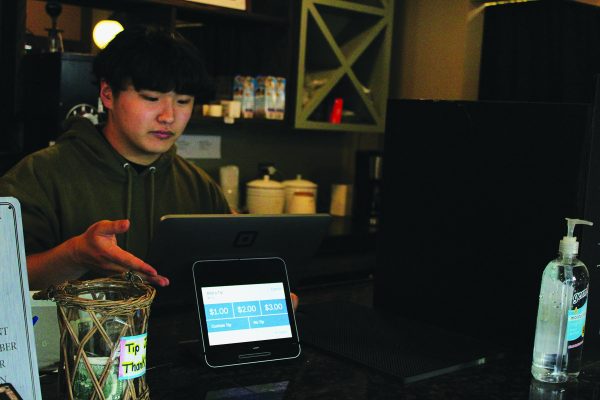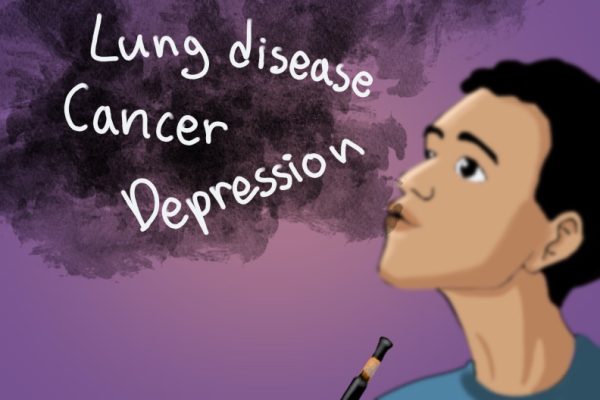Claims of local drug abuse ignite demands for immediate change
Tears roll silently down her cheeks as PJ Newberg, the founder and director of Northshore Secret Heroin Problem, recalls the struggles she has faced since her daughter became a heroin addict. When the addiction developed, Newberg began living a mother’s worst nightmare.
“I have to wonder everyday, is she alive?” said Newberg. “[I wonder], is this going to be it?”
According to Newberg, her daughter, a former Glenbrook South student, became an addict in 2010 while still in high school. She has since been in and out of jail, has attended rehab over a dozen times and has had numerous hospitalizations, even facing the risk of having her arm amputated.
Newberg said that because Chicago serves as a “hub” for the sale of drugs, narcotics like heroin are easily obtainable in suburban areas, leading to drug abuse in the Northshore.
This drug abuse has created concerns among several parents within District 225. According to the official minutes from the district’s Aug. 8 board meeting, at least six parents spoke out with concerns about student drug abuse and voiced their desires for changes to the current drug policy. During the meeting, one parent shared that her son purchased a pot brownie from another student in the cafeteria.
Christine Suffet, parent of a Glenbrook North student, attended the board meeting and said she has noticed drug abuse among students. Last April, she was astonished as she watched a car with male students drive out of the school parking lot while “the boy in the passenger seat was lighting a bong.” In two other incidents, she witnessed students vaping in their cars.
Senior Kendall Crispin said she recognizes that some students abuse drugs, posting videos and photos of their drug use on social media.
“There is nothing that we can do as a school that will stop every single person from doing [drugs],” said Crispin. “So, I think GBN is doing as good of a job as they can, but there definitely are people doing things that they shouldn’t be [doing].”
Crispin said she believes the school has a “good” drug policy, especially because students suspended for drug abuse will likely face the consequence of being removed from sports or other activities.
According to Dean William Eike, the drug policy underwent changes eight to nine years ago. The policy became more “therapeutic,” encouraging students to obtain the help they may need.
He said the previous policy was a “zero tolerance policy,” which meant that students violating the policy would be taken to the Board of Education to be put up for expulsion. Now, if students are caught under the influence of drugs at school, they are given an automatic 10-day suspension. The suspension can be reduced to five days if a student is evaluated by an approved agency and follows through with the treatment recommendations of that agency, emphasizing student well-being.
“Do I think GBN has a drug problem?” said Eike. “I think, over the years, [drug-related incidents have] been more of a steady-type trend. Sometimes we might have a few more violations, then the next year we won’t have as many violations. So, are we any different than any other school? I don’t think so.”
Eike said the district is still in the process of compiling statistics regarding cases of student drug use.
For some, this policy is not sufficient, with parents like Suffet calling for immediate changes to the drug policy. Suffet said she stresses the importance of “deterrents” and education to help prevent drug use within the district.
“[Drug abuse] is everywhere,” said Suffet. “… And, the more research I did, the more I realized the other schools are doing a heck of a lot more to deter [drug use] than [GBN is].”
As part of this research, Suffet said she contacted schools like Grayslake Central and Grayslake North High School, which she believes use strong deterrents such as breathalyzers before students enter the building for school dances. These schools also conduct random drug screenings on students with privileges like the ability to park their cars on campus. Suffet also supports the occasional use of canines to sniff out drugs within the building.
However, Suffet said she understands that drug abuse is a community-wide issue.
“We’re not going to stop kids from doing drugs,” said Suffet. “That’s not the intent. I mean, that’d be awesome, but that is not the intent. We’re just trying to deter the drugs from being in the schools. That’s it.”
Suffet said she will continue to call for changes to the district’s drug policy, although she was “floored” and “blindsided” by the board’s resistance to these desires for change.
Joel Taub, District 225 school board member, said he mentioned the possibility of increased deterrents at a prior board meeting. Although he was on vacation during the April 25, 2016, meeting, Taub later learned that the board had decided there was no need for the administration to continue pursuing the topic, leading him to support the majority decision.
“So, the administration does not feel that it was warranted to do anything else,” Taub said.
According to Taub, at the Aug. 8 board meeting, approximately 40 parents came to support those who expressed their concerns about drug abuse in the district, leading the board to agree that they would look into the current policy. The administration is scheduled to address the matter in a board meeting at the end of September.
Taub said his goal is to keep drugs out of the school, although he knows that drugs will not be kept out of society.
For Newberg, the fight against drugs is personal.
“[Drugs] literally stole, not only my relationship with [my daughter], but [heroin] stole her education, it stole her values, it stole her morals,” said Newberg. “[It stole] anything she cared about. … It takes everything from you.”


